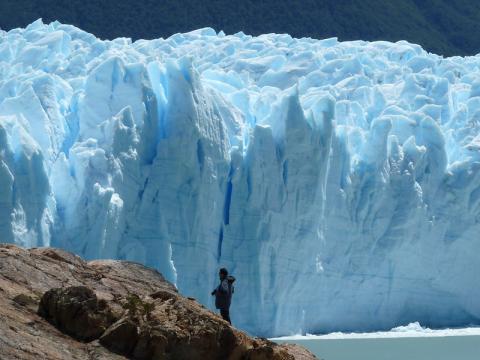The report of Working Group I (physical science basis) of the Intergovernmental Panel on Climate Change (IPCC) Sixth Assessment Report (AR6) will be published at a press conference on 9 August 2021, following approval plenaries from 26 July-6 August.
Four researchers from the UK Climate Resilience Programme (UKCR) are lead authors for the report: Ed Hawkins (Chapter 1), from Met Office Work Package on Improving Climate Hazard Information (Digitisation of Observations); Andrew Turner (Chapter 10) and Nigel Arnell (Chapter 12), both from UKCR project High Impact Scenarios and Storylines; and UKCR co-Champion Suraje Dessai (Chapter 12).
The author team for Working Group I has a total of 234 co-ordinating lead authors, lead authors and review editors; many UKCR researchers are among the contributing authors.
Review meeting
The report’s main findings will be reviewed in a day-long meeting held by the Royal Meteorological Society (RMetS) on 15 September, which will consider what it means for the ongoing development of our response to climate change and what message it sends to governments before they meet in Glasgow at COP26.
The meeting will hear from leading scientists involved in the report, including the UKCR’s Prof Suraje Dessai, who is contributing to a panel discussion on the implications for UK adaptation. The RMetS event will also hear from those who are actively involved with making decisions on climate change actions, with a separate session to consider the relevance to diverse sectors.
Report features
The new structure of the Working Group I report shows there will be more integrated knowledge and understanding compared to the previous report (AR5).
- There is a far greater emphasis on regional climate change (the final third of the chapters all have a regional focus). These chapters will cover the large advances in scientific knowledge on changes in extreme events and attributing these events to man-made climate change, notably in Chapter 11 (Weather and climate extreme events in a changing climate), a new dedicated chapter on this topic.
- Chapter 10 (Linking global to regional climate change), another new chapter, connects the global to the local, and is highly relevant to the needs of local policymakers.
- Chapter 12 (Climate change information for regional impact and for risk assessment) looks not just at extremes but also other factors that are relevant for risk assessments that might appear over longer time scales. This information can help with risk and impact assessments – part of Working Group I’s contribution to solutions.
- The report also includes an interactive online regional atlas featuring data underpinning the Working Group I assessment, including observed and projected climate change information. Users can perform spatial and temporal analyses using many datasets used in the assessment, access synthesized regional information for climatic impact drivers and download data.
- There’s a greater focus on how the Earth responds to climate change in the Working Group I report, looking for example at how the oceans and atmosphere respond when greenhouse gas emissions are reduced or if carbon removal techniques are used, and the timelines associated with these actions. There will also be an updated assessment of our understanding of how sensitive the Earth’s temperature is to carbon dioxide emissions.
- In the Fifth Assessment Report (published 2014), four Representative Concentration Pathways (RCPs) were used to simulate future climate change. This time the IPCC uses Shared Socio-Economic Pathways (SSPs) that look at a far great range of options / scenarios. A UKCR project, UK-SSPs, has explored downscaled UK narratives and gridded data for a range of indicators that are consistent with the global SSPs underpinning the IPCC assessment.
Scope and statistics
The Working Group I report assesses scientific literature accepted for publication up to 31 January 2021 and has over 14,000 citations. Previous drafts of the report have a staggering number of review comments: 23,462 for the first order draft (experts); 51,387 for the second order draft (experts and governments) and 3,158 for the final draft (governments).
The reports of Working Group II (impacts, adaptation and vulnerability) and Working Group III (mitigation) are due in February and March 2022 respectively, with the final Synthesis Report scheduled for September 2022 (dates to be confirmed). The IPCC has produced a video, What is the IPCC’s Sixth Assessment Report?, that explains the process.
Picture: Keskyle70, CC-BY-2.0

